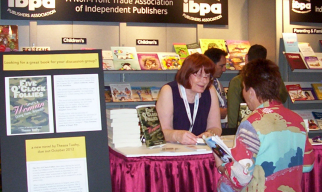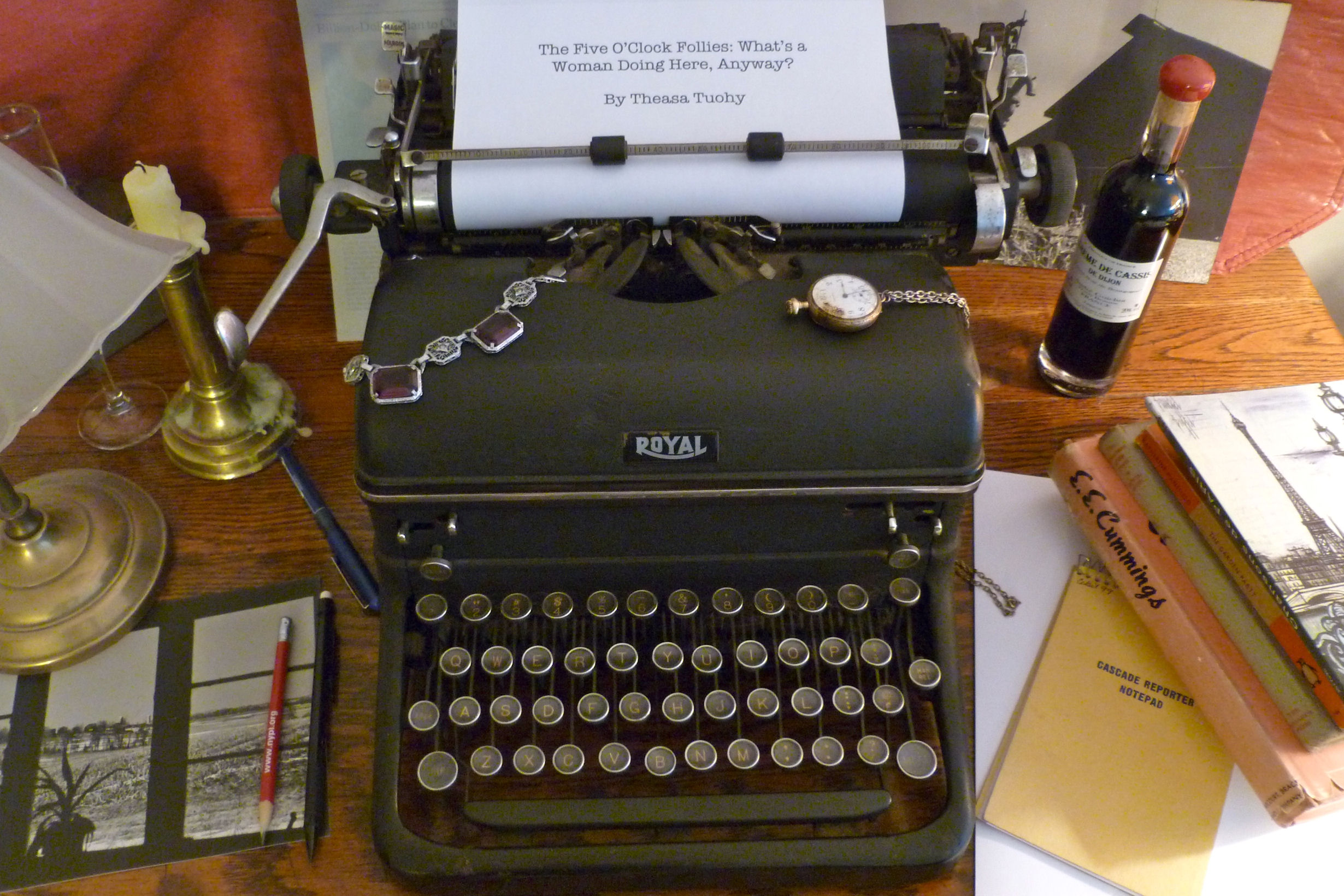|
Q & A with the Author

Tell me about some of the most memorable pieces you wrote as a journalist.
Any and all of it. It's a wonderful life. I did stories on vicious gang members from Detroit, once covered the National Spelling Bee in Washington, D.C., interviewed Weeb Ewbank in his home when he was coach of the NY Jets, only reporter ever allowed into Abbie Hoffman's home when he was the scourge of the FBI. Had lunch with a member of the British parliament, did a phone interview with a New York looter from my desk in Detroit. No one could figure out how I could have such contacts, but the details were so vivid and accurate the paper stripped it across the top of Page One. I leaped out of a moving car to catch up with Bobby Kennedy, and still have the grainy news clip of me standing next to him on a campaign platform taking notes. I spent hours with the French sculptor Jacques Lipchitz in his studio in Hastings. I accidentally ended up covering the Oklahoma City bombing because I was in town to celebrate my mother's birthday when the explosion occurred. When I was at the Detroit Free Press I did profiles on William F. Buckley, Gloria Steinem, Arthur J. Goldberg, former Supreme Court justice, UN ambassador, and secretary of labor. For the Associated Press, I wrote about my mother who was an aviator in the late 1920s. The list goes on.
How long have you worked on this project?
On and off for many years. I began when I was working for the Op Ed page at Newsday and found a book called “Big Story” in the slush pile. It was a 598-page, abridged version of a study by Peter Braestrup with the subtitle “How the American Press and Television Reported and Interpreted the Crisis of Tet 1968 in Vietnam and Washington.” I can still remember sitting up in bed that first night and studying it, mainly the 1968 map of central Saigon with locations of all of the press offices marked. When I went to Saigon many years later, I had a copy of that map. And when a guide pointed out what he called the opera house, I was stunned. It can't be, it's the National Assembly Building. He laughed. That's what it was in 1968.
Did you do special research or travel?
I did a tremendous amount of research, and I take pride in the fact that the book is historically accurate, in terms of the dates, battles, and what life was like. Or as Hemmingway once said: “And how the weather was.” (Which in one incarnation was the title of the book.) I traveled to Vietnam in 2003 to double check my research and pick up what writers term ‘the telling detail.’ I made a point of staying on the second floor of the Continental Hotel, where the hotel claims that Graham Greene lived when he was writing The Quiet American. A number of real people are named in the book, such as Peter Arnett of the AP, Joe Fried of the Daily News, and Bill Tuohy, a distant cousin, who won a Pulitzer for his Vietnam coverage.
What is the relevance of “The Five O'Clock Follies” for today?
We're still in unpopular distant wars. Women journalists are around in increasing numbers, and paying the price such as American journalist Marie Colvin of The Sunday Times of London who was killed in Syria in February. With women now being allowed to be killed, raped and shot at along with the men, it will probably come as a surprise to many young women today to find out how different it was not so very long ago. I guess this is progress?
Contrast the experiences of women journalists in WWII with those in Vietnam.
There seem to have been more in WWII and ones that were more high profile. This requires further study on my part, but I suspect it has to do with "the different kind of war" aspect of Vietnam, and also, the fact that the entire country was mobilized during WWII. This is an interesting issue to explore.
Are there any "messages" that you are trying to convey?
Women could do whatever they wanted before the so-called feminist revolution. They just had to do it, and perhaps work harder. At that time, I was staying up all night writing reams of copy, alone, in an un-air-conditioned Yonkers newsroom. But that's not to say I didn't have to put my foot down once in awhile. As a young woman I became the first female assistant city editor at The Detroit News, one of the largest afternoon dailies in the country at the time. By the time I left the Associated Press, I would look around the headquarters newsroom in New York and marvel at the number of women. So, I suppose this book is about history. How far women have come since then, how the news business has changed, how labor issues have evolved. But this book is not meant to be a feminist polemic. I hoped just to tell it like it was.
Do you reveal any new information that has never been disclosed or that very few people know about?
It's not entirely new information, but even journalists themselves are surprised by how loose the reporting situation was in Vietnam. At that time, if you simply showed up at the AP headquarters in New York with a letter from a hometown newspaper saying you were going to Vietnam they would give you a camera and a roll of film. All sorts of people paid their own airfare and arrived with a letter from their church newsletter, etc.
Describe your journey to journalism.
After I took my last final at Berkeley, I didn't stick around to collect my diploma at graduation, but got on a train for New York. I had a degree in Criminology, but had no idea what I wanted to do with my life except that it should be something interesting and fun. I had a vague idea of being a juvenile court judge. This was not exactly a formula for success for a woman in the 1960s. Before I landed my first newspaper job and found a home, I did a short stint at Seventeen Magazine. I wrote briefly for a children's encyclopedia, attended law school for four days, worked at Macy's as a store detective for one day and travelled in Europe a couple of summers, once on a freighter. I was thus prepared to do whatever struck me, so I paid no attention when men at newspapers wondered what a woman was doing there. I had a fun job I was trying to learn, and I loved the slapdash and unpredictability of each new day. The only real preparation I made towards the future was that I refused to take a shorthand course, even when I was repeatedly warned that as a woman I'd need something to fall back on.
Why Vietnam?
Not too long ago, on a veterans’ website, I ran into a story I had written many years before about a soldier from Yonkers, NY, who had been killed in the Vietnam conflict. I suddenly remembered crying when I wrote it, crying at the gravesite.
|

